Hello! I’ve missed you, it’s been too long.
This is the shortest voter guide I’ve ever written. It’s a primary election, so there are lots of questions on the ballot for you: candidates for US President, US Senator, members of Congress, members of the State Legislature, a few judgeships. The most exciting races, IMO, are for US Senate to replace the late Senator Dianne Feinstein, and the East Bay Congressional seat replacing Barbara Lee, who is running for Feinstein’s seat.
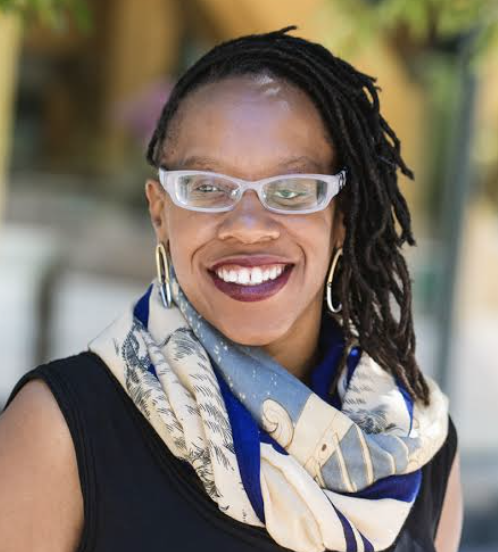
For Lee’s Congressional seat, I’m voting for the incredibly talented Lateefah Simon. With a compelling personal story and a plan of action, she is truly electrifying. For Feinstein’s seat, I haven’t yet decided among Barbara Lee, Katie Porter and Adam Schiff. Honestly, all three would be terrific advocates for our state – you can’t go wrong with any of them.
San Francisco and Oakland have several contentious measures and races, but – you’re on your own there. To maintain my sanity (and focus), I’m only analyzing statewide ballot measures these days, and there’s only one proposition on the March ballot in California (phew!). If you need help with other races and local measures, I highly recommend using Ballotpedia to study each race.
If you haven’t read my voter guide before, you should know that I research the hell out of ballot measures so that you don’t have to! My aim is to provide you with way more information than you ever thought you would need to make an informed decision.
Before we begin, I should clarify that the opinions I express in this voter guide are my own and should not be attributed to any of my clients. Please send all hate mail to me at info (at) votealix.com.
In the interest of full disclosure, I’m a single mom, a liberal Democrat, a startup attorney and a government nerd, whose passions include arts and culture, getting more women elected to public office, and reversing global climate change. I’ve worked on more political campaigns than I can count, including my own, and I also like long walks on the beach.
Without further ado, I offer my thoughts on the March 2024 ballot measure.
Proposition 1 – Behavioral Health Services Program and Bond Measure – YES
I’ll sum this one up by saying: the homeless situation in California is horrific. Local governments have tried a lot of different tactics to get unhoused folks off the streets and into treatment if they need it. Prop 1 would enable the state to step in and throw money at the problem without any new taxes – by raising $6.38 billion in bonds to build mental health treatment facilities, and – for the first time – allow for substance use as an eligibility for these services. It would change the way counties spend their homelessness funds, and hold them accountable to the state’s goals.
Background:
Let’s go back in time to the 1950’s and 1960s, when California had numerous publicly funded mental health institutions where the seriously ill could reside and be treated indefinitely. Many of these patients had schizophrenia, or other forms of brain dysfunction that prevented them from leading normal lives. These patients weren’t always treated well – the hospitals were under-funded, patients were often neglected and physicians over-relied on medication, lobotomies and electroconvulsive therapy (yikes!). We’ve come a long way since then.
In light of these abuses, the 1960’s saw the rise of a “deinstitutionalization” movement, which, when paired with a conservative antipathy toward big government (thanks, Governor Ronald Reagan!), led to the closing of these institutions and the dumping of tens of thousands of these patients out into the streets. Since then, cities and counties have worked to fill the gap in services, but the problem continued to grow as California’s income disparity worsened. The counties with fewer resources struggled the most to keep folks off the streets and in supportive housing.
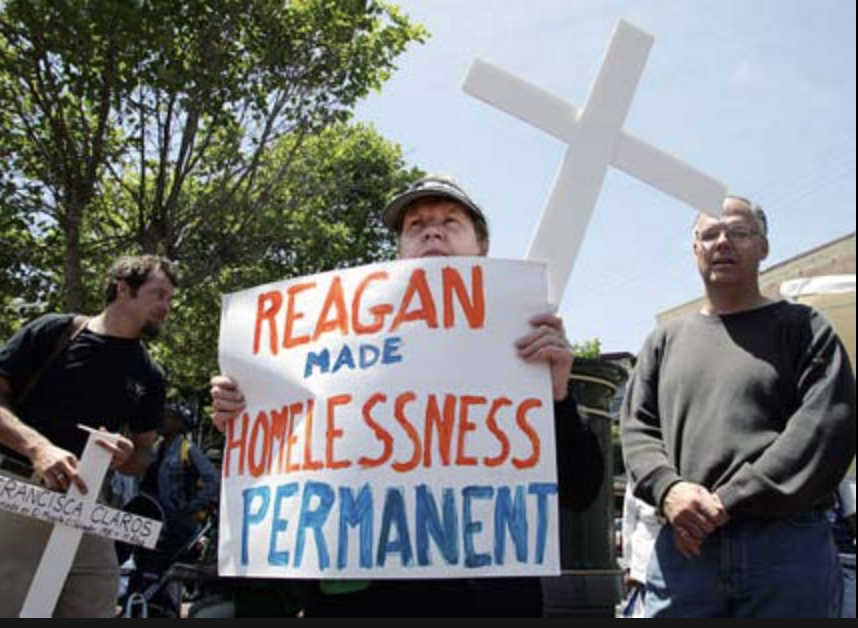
Enter Prop 63 in 2004, titled the Mental Health Services Act (MHSA), which enacted a 1% tax on personal income above $1 million and dedicated the revenue to fund mental health services and programs at the county level. The MHSA helped local governments address mental health challenges of the unhoused, but it failed to address two big factors in homelessness: substance use disorders and lack of available housing for those being treated.
What Prop 1 Will Do:
Prop 1 would amend the MHSA to rename it to the Behavioral Health Services Act (BHSA) and expand its support to substance use treatment for those without other mental health issues. It would change how county mental health plans are required to spend the revenue from the 1% so-called “millionaire’s tax” – requiring 30% to be allocated to housing intervention programs. Most important, it authorizes the state to borrow $6.38 billion to build housing and mental health treatment facilities for the unhoused, and those with mental health and substance use challenges. Up to $4.4 billion of those bond revenues would go toward mental health care and drug or alcohol treatment facilities and $2.0 billion would go to housing for the homeless.
It’s clever in that it does not include any new taxes; it merely redirects some of the existing tax revenues toward housing and treatment of substance use disorders. It signifies a major shift in the state’s role in how homeless programs are administered, and in doing so, is ruffling a lot of feathers.

It’s important to note that when it passed in 2004, no one thought the millionaire’s tax would generate $3.5 to $4 billion per year. There are hundreds of county departments and local nonprofits that are now dependent on this revenue… that’s about to change for them if Prop 1 passes.
Let’s talk about the bond – more than $4 billion of its proceeds will go toward building treatment facilities like crisis care centers, rehabs, outpatient services. The rest – about $2 billion – will go to supportive housing, about half of which will go toward housing veterans, who are disproportionately affected by these issues. As a reminder, a bond measure is a way for the state to borrow money. The state will pay interest on those bonds using general fund money, which is why the voters need to approve them.
Supporters of Prop 1:

This is Governor Newsom’s baby. He’s been passionate about solving homelessness since he was Mayor of San Francisco, and he is (understandably) sensitive to the criticism that it has gotten worse on his watch. Newsom has raised more than $14m in favor of Prop 1, and he has gathered an impressive amount of allies and endorsers, including first responders, teachers, health care organizations, business groups, labor unions and Native American tribes, and the League of California Cities. When Newsom proposed Prop 1 this year, the state legislature voted nearly unanimously to place it on the ballot.
Newsom argues that the mental health system is broken, the COVID pandemic only made things worse, and the government hasn’t done enough to build housing for the poor. On KQED’s Forum, he pointed out that since the deinstitutionalization of mental health patients in the 70s and 80s, the state hasn’t been involved in solving the problem. Cities and counties have been bearing the burden of homeless and mental health crises on the streets, and they are not keeping pace with the growing population. It’s time for the state – with its ability to dedicate vastly more resources behind the effort – to step in and get more Californians into supportive housing. The state can also do better in holding counties accountable to meet performance goals.
The Prop 1 campaign argues that the new law will:
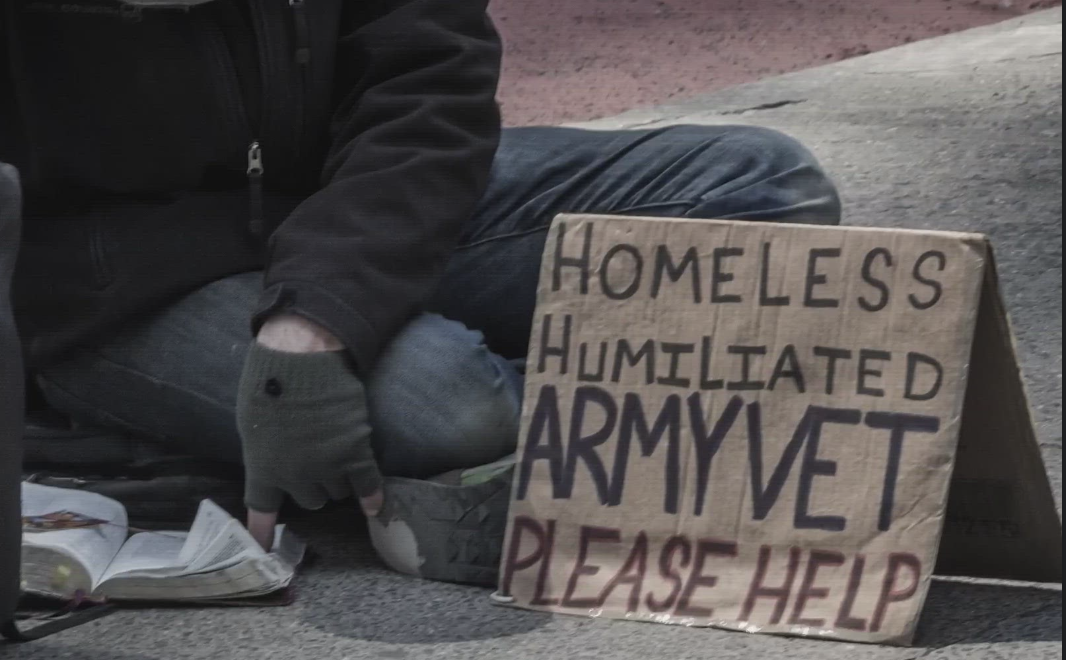
- Provide treatment over incarceration. One in three California prisoners has a diagnosed mental illness. Prop. 1 will prioritize treatment not punishment for the mentally ill.
- Help homeless veterans. They argue that it is shameful that over 10,000 California veterans, many suffering from PTSD, are homeless and on the streets.
- Require strict accountability without raising taxes. These measures include mandatory audits of county departments.
- Improve access to care. Prop 1 is expected to fund additional professionals, reducing long wait times for mental health services.
Opponents of Prop 1:
The opposition has raised exactly $1000 and they claim to be an all-volunteer effort. This doesn’t mean their campaign is going to lose, but it will certainly be an uphill battle for them.
Their coalition includes an interesting hodgepodge of groups: folks who hate all taxes generally, some mental health and disability rights groups, County officials, and good government organizations like the League of Women Voters of California.
The mental health and disability rights groups are worried about funding being redirected from mental health treatment into building housing. Carl DeMaio, a leader of the NO on Prop 1 campaign said “At a time when we face a growing mental health crisis with homelessness, Prop 1 actually diverts existing funds from mental health treatment programs so the money can be diverted to government-financed housing projects. In doing so, Prop 1 raids and diverts funding from the very mental health treatment programs that currently serve homeless people!” These groups are also concerned that Prop 1’s focus on institutionalization could lead to worse health outcomes and infringe on individual liberties.
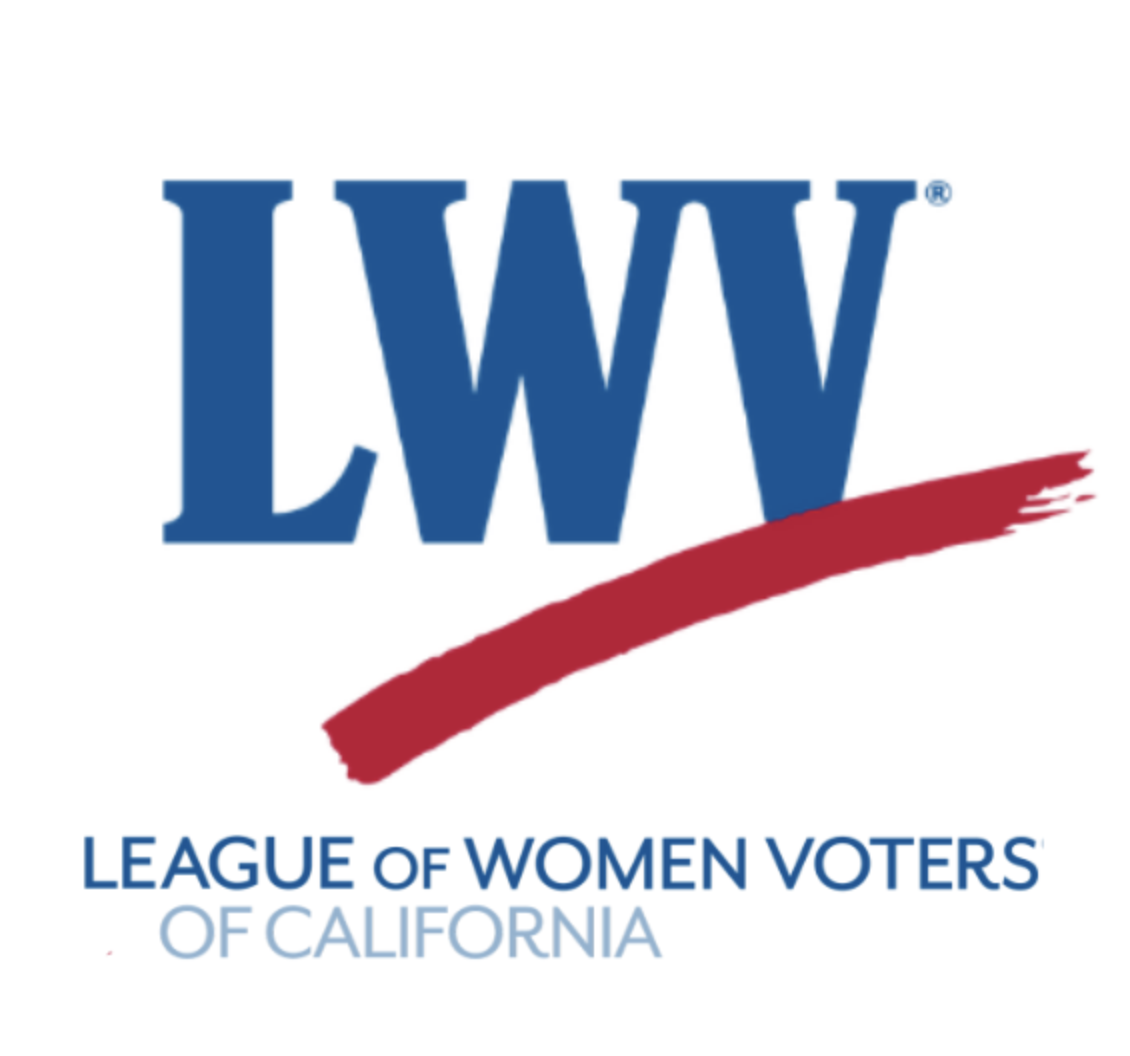
Good government advocates and fiscal watchdogs worry that the $6.4 billion bond would exacerbate the state’s financial issues, given California’s $68 billion deficit. They claim (and I haven’t fact-checked it) that repayment of this bond could cost taxpayers up to $12.45 billion. They are also skeptical about the state’s ability to manage the funds effectively, citing past failures with bonds for high-speed rail, water, housing, and infrastructure projects.
County officials don’t like Prop 1 because it’s going to change the way they do business, shift their budgets, and force them to be accountable to the state. The League of Women Voters is similarly concerned about the loss of local control.
Then there are the Newsom-haters, who say that Prop 1 is a craven political maneuver to address criticisms of Newsom’s handling of California’s homelessness crisis. They say it provides him with political cover without properly addressing the root causes of the issues it hopes to solve.
And finally, some advocates claim that Prop 1 isn’t ambitious enough. Given the scale of the state’s homelessness problem, the plan to build 4,350 housing units and accommodate 6,800 people for mental health care or drug or alcohol treatment is a drop in the bucket.
My Analysis:
On balance, I’ll support Prop 1. Here are my thoughts:
- Prop 1 is probably going to help the state make progress on homelessness. Given the situation on our streets, *anything* is better than what we are doing now.
- It is shameful that so many veterans are on the street with untreated PTSD. Prop 1 will dedicate $1 billion to get these folks into housing.
- I am not the biggest fan of Governor Newsom, but he is a subject matter expert after all these years. Let’s give him one last chance to try to make a dent in this massive problem.
- I’m not worried about the civil liberties of profoundly disabled folks who are posing threats to themselves and others. Let’s try getting them into institutions so they can start living healthier (and safer) lives. This is not the 1960s – institutions no longer have the cloak of secrecy to shield their treatment of mental patients. I hope that the state will oversee the administration of these institutions in addition to making sure the money is well spent.
- Counties need to suck it up. What they have been doing ISN’T WORKING. It’s time to try something else and hold them accountable to metrics.
- I agree Prop 1 won’t completely solve homelessness, but it is likely to make a difference. At the very least, we’ll learn more about what works and what doesn’t.
- I agree with good government groups on one thing: major policy changes and budgetary shifts shouldn’t be decided by the ballot box. As you’ve heard me say before, it is absolutely ridiculous that you need a graduate degree and loads of free time to fully understand most measures on the California ballot these days. However, since this proposition amends a previous ballot measure, there is no other way to do it. Until we hold a constitutional convention and completely scrap the way California legislates, we are stuck with this method of governance. Blah.
But don’t take my word for it. Here’s what the state’s major newspapers say:

“California is short thousands of mental health beds at all levels of care, according to a 2021 study from the nonprofit think tank Rand Corp. Furthermore, even when beds are available, many facilities are unwilling or unable to accept patients with complex co-occurring conditions, criminal records and a history of violence. Other times, beds sit empty because there aren’t enough workers to staff them. As of late last year, some behavioral health nonprofits that contract with San Francisco had vacancy rates reaching 40%. Enter Proposition 1, a state ballot measure that Gov. Gavin Newsom’s administration describes as the ‘linchpin’ of its strategy to overhaul California’s behavioral health system. The status quo is not an option — and that means voting ‘yes’ for Prop. 1 on March 5.”

“When compared with the cost of doing nothing, Proposition 1 is an important step forward in meeting California’s responsibility to the most vulnerable homeless people and those housed Californians with behavioral health problems most at risk of ending up on the street. It is a worthy addition to other state, local and private investments, and it warrants support. The Times urges voters to approve Proposition 1.”

“The state has limited resources, the current distribution of money is not getting the job done and the problem requires a statewide approach. To provide a clearer picture of federal, state and county efforts in California to address mental health issues, Prop. 1 would also require counties to report how they spend all the money from those sources. Newsom wants to try something new. Voters should give him that chance. But they should also hold him accountable to ensure that Proposition 1 delivers promised improvements.”
* * *
Thanks for reading! If you like what you read here, and found it to be helpful, please throw a few pennies in the jar to help cover my costs, forward this blog post to your friends and frenemies, subscribe your roommates to my blog without telling them (kidding!). This blog is a labor of love for me. I don’t accept donations or advertisements from campaigns, so I rely on my readers to support this weird little passion project of mine.
Oh and I’m warning you now – the November ballot is going to break records. 10 measures have already qualified for the ballot, with another 28 (!!!) cleared to collect signatures. In addition to those, there could be any number of measures referred by the legislature. Pray for me.




 Madame Speaker is the most powerful woman in American government, and she has wielded that power in favor of progressive values in an extremely challenging political environment. She is partly responsible for wresting the House back to Democratic control in 2018 by supporting the right candidates (including many women!) in swing districts. I also admire her ability to troll President Trump and get under his skin. I am voting for her with enthusiasm.
Madame Speaker is the most powerful woman in American government, and she has wielded that power in favor of progressive values in an extremely challenging political environment. She is partly responsible for wresting the House back to Democratic control in 2018 by supporting the right candidates (including many women!) in swing districts. I also admire her ability to troll President Trump and get under his skin. I am voting for her with enthusiasm.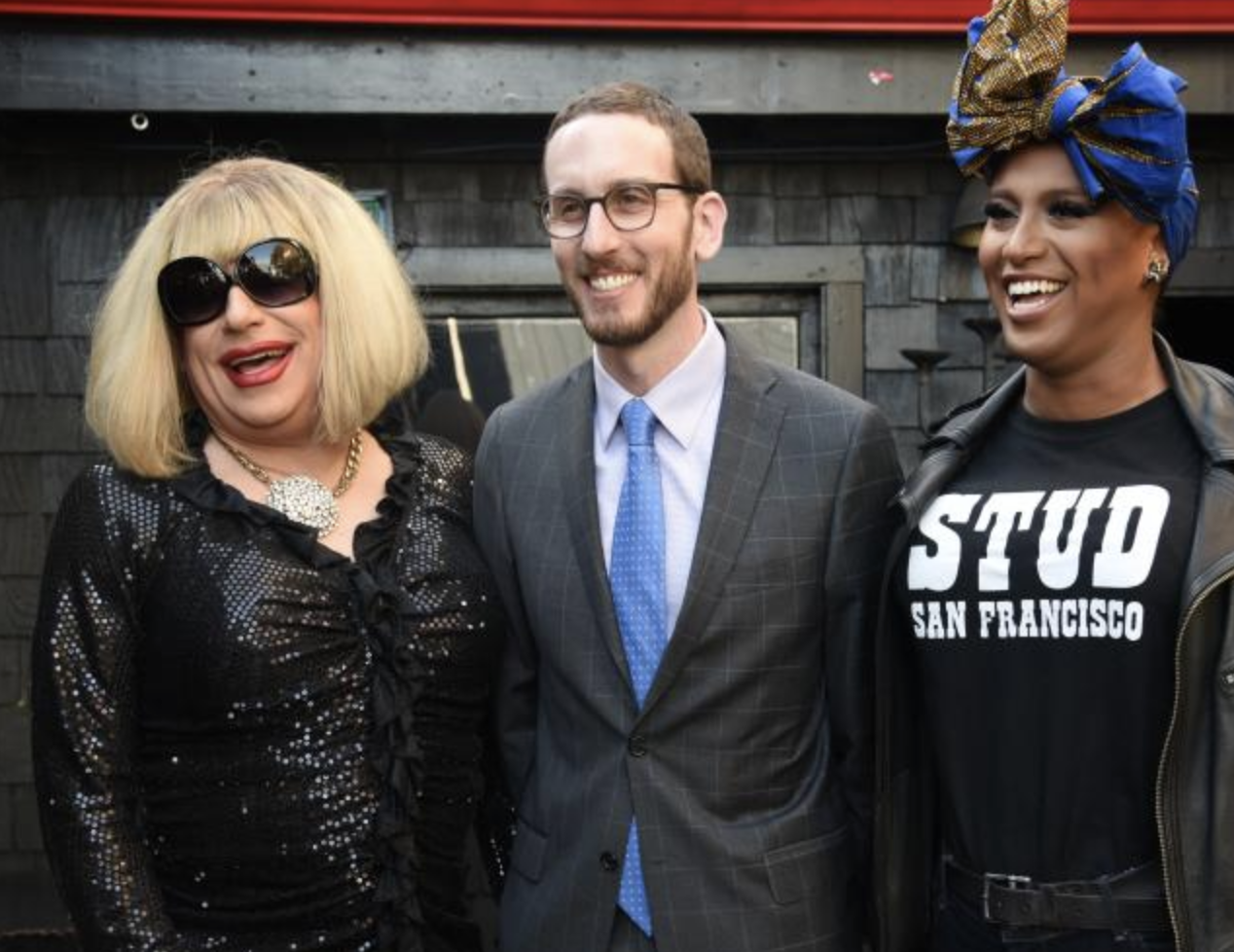 Over the years I have worked with Senator Scott Wiener in advocating for nightlife and culture and paid parental leave. He is also known for his work in improving public transit and access to housing. He is a tireless and prolific legislator, and in recent years he has been relentless in advocating for the development of housing of all kinds across the state. Because he has been fearless in tackling some of the states’ most intractable issues, he’s also made some enemies – especially among those who oppose real estate development. Personally, I agree with Scott that cities of all sizes need to start making sacrifices to build denser housing and taller buildings – it’s the only way out of our perpetual housing crunch in this state.
Over the years I have worked with Senator Scott Wiener in advocating for nightlife and culture and paid parental leave. He is also known for his work in improving public transit and access to housing. He is a tireless and prolific legislator, and in recent years he has been relentless in advocating for the development of housing of all kinds across the state. Because he has been fearless in tackling some of the states’ most intractable issues, he’s also made some enemies – especially among those who oppose real estate development. Personally, I agree with Scott that cities of all sizes need to start making sacrifices to build denser housing and taller buildings – it’s the only way out of our perpetual housing crunch in this state.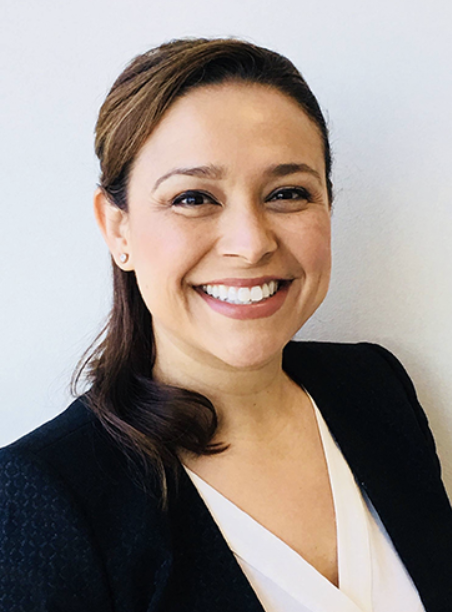 First, I would like to note that there are six candidates for judge on this ballot: all of them women, and five are women of color. This is remarkable. We’ve come a long way, baby!
First, I would like to note that there are six candidates for judge on this ballot: all of them women, and five are women of color. This is remarkable. We’ve come a long way, baby! I see two highly qualified women of color in this race: an administrative law judge and a deputy public defender. Both candidates would bring formidable experience to the Superior Court bench. Proudfoot is a former prosecutor who has presided over more than 200 rent-control cases as an administrative law judge. She spent 16 years as a deputy district attorney, specializing in gang violence and sexual assault. She is endorsed by Senator Scott Wiener, Assemblymember David Chiu and over 20 judges.
I see two highly qualified women of color in this race: an administrative law judge and a deputy public defender. Both candidates would bring formidable experience to the Superior Court bench. Proudfoot is a former prosecutor who has presided over more than 200 rent-control cases as an administrative law judge. She spent 16 years as a deputy district attorney, specializing in gang violence and sexual assault. She is endorsed by Senator Scott Wiener, Assemblymember David Chiu and over 20 judges. Rani Singh is an experienced prosecutor who has appeared in more than 100 trials. She is my choice because she received the rating of “exceptionally well qualified” from the Bar Association of San Francisco, which is very rare to see. Rani is not your typical DA – she leads the Collaborative Courts and Mental Health Units of the DA’s office, working with both victims AND defendants on addressing root causes of crime. She is endorsed by over a dozen Judges including Judge John K. Stewart, whose seat she is running for, Judge Linda Colfax, and elected officials including Senator Scott Wiener, former Senator Mark Leno, Assemblymember David Chiu, Assessor Carmen Chu, and Supervisor Aaron Peskin. That’s a broad coalition of support from both sides of the aisle.
Rani Singh is an experienced prosecutor who has appeared in more than 100 trials. She is my choice because she received the rating of “exceptionally well qualified” from the Bar Association of San Francisco, which is very rare to see. Rani is not your typical DA – she leads the Collaborative Courts and Mental Health Units of the DA’s office, working with both victims AND defendants on addressing root causes of crime. She is endorsed by over a dozen Judges including Judge John K. Stewart, whose seat she is running for, Judge Linda Colfax, and elected officials including Senator Scott Wiener, former Senator Mark Leno, Assemblymember David Chiu, Assessor Carmen Chu, and Supervisor Aaron Peskin. That’s a broad coalition of support from both sides of the aisle. The DCCC is the governing body of the local Democratic party. It registers voters, endorses candidates, and takes positions on issues important to San Franciscans. When I served on the DCCC (from 2010-2016), I was most proud of the work I did to recruit and support female candidates for public office.
The DCCC is the governing body of the local Democratic party. It registers voters, endorses candidates, and takes positions on issues important to San Franciscans. When I served on the DCCC (from 2010-2016), I was most proud of the work I did to recruit and support female candidates for public office.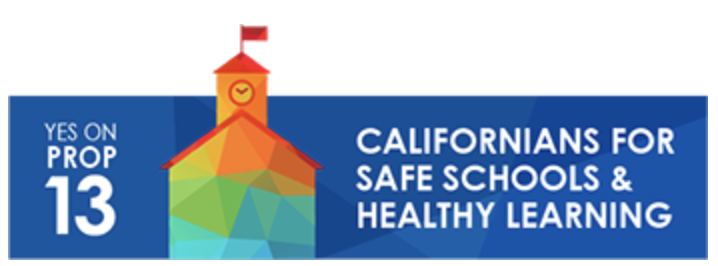 The revenues from Prop 51 have already been claimed, and unfortunately it was structured on a first-come, first-served basis, so the schools who benefitted were mostly in wealthier and larger school districts who could get their applications in the fastest. Ugh. So here we are, with a LARGER bond measure, specifically designed to prioritize NEED, not SPEED. If Prop 13 passes, the schools in smaller and low-income districts will get the funds they deserve to make their improvements.
The revenues from Prop 51 have already been claimed, and unfortunately it was structured on a first-come, first-served basis, so the schools who benefitted were mostly in wealthier and larger school districts who could get their applications in the fastest. Ugh. So here we are, with a LARGER bond measure, specifically designed to prioritize NEED, not SPEED. If Prop 13 passes, the schools in smaller and low-income districts will get the funds they deserve to make their improvements.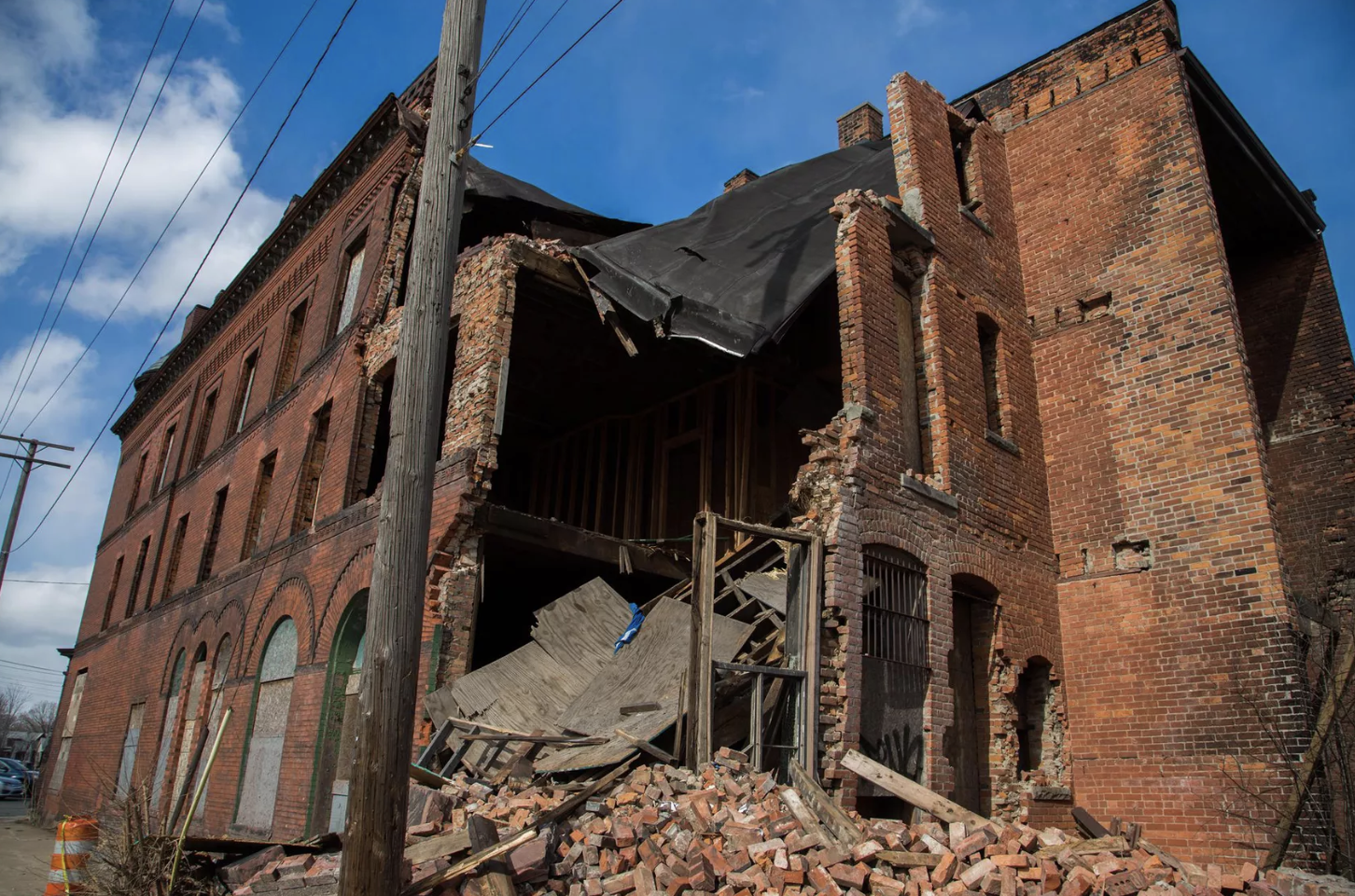
 Is it a worthy cause? Seismologists say there is a 72% likelihood that the next major regional earthquake will strike
Is it a worthy cause? Seismologists say there is a 72% likelihood that the next major regional earthquake will strike 
 Prop E would limit the development of new office space by tying office development projects to whether the city is meeting its affordable housing goals. It is true that the city has enjoyed an incredible employment boom (thanks, Big Tech!); however, it has not been able to build housing fast enough to accommodate all the people who are taking those jobs. As a result, a lot of these folks need to live outside the city, and all those commuters are bad for traffic congestion, transit resources, the environment, etc.. The idea behind Prop E is that we need to bring jobs and housing into a better balance – and we do that by requiring that more affordable housing be built BEFORE we build ANY new office space.
Prop E would limit the development of new office space by tying office development projects to whether the city is meeting its affordable housing goals. It is true that the city has enjoyed an incredible employment boom (thanks, Big Tech!); however, it has not been able to build housing fast enough to accommodate all the people who are taking those jobs. As a result, a lot of these folks need to live outside the city, and all those commuters are bad for traffic congestion, transit resources, the environment, etc.. The idea behind Prop E is that we need to bring jobs and housing into a better balance – and we do that by requiring that more affordable housing be built BEFORE we build ANY new office space.













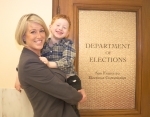

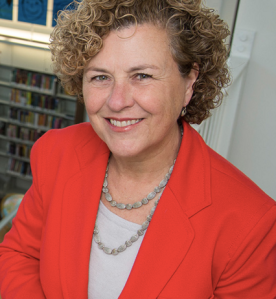











 This complicated measure will authorize $7.12 billion in new general obligation bonds for state water supply infrastructure projects, such as public water system improvements, surface and groundwater storage, drinking water protection, water recycling and advanced water treatment technology, water supply management and conveyance, wastewater treatment, drought relief, emergency water supplies, and ecosystem and watershed protection and restoration.
This complicated measure will authorize $7.12 billion in new general obligation bonds for state water supply infrastructure projects, such as public water system improvements, surface and groundwater storage, drinking water protection, water recycling and advanced water treatment technology, water supply management and conveyance, wastewater treatment, drought relief, emergency water supplies, and ecosystem and watershed protection and restoration. This measure does three things: (1) it increases the amount of non-economic damages that can be awarded for pain and suffering in medical malpractice claims from $250,000 to over $1 million; (2) it requires the random drug testing of all doctors and requires the medical board to suspend all doctors with positive tests; and (3) requires health care practitioners to consult a state prescription drug history database before prescribing certain controlled substances.
This measure does three things: (1) it increases the amount of non-economic damages that can be awarded for pain and suffering in medical malpractice claims from $250,000 to over $1 million; (2) it requires the random drug testing of all doctors and requires the medical board to suspend all doctors with positive tests; and (3) requires health care practitioners to consult a state prescription drug history database before prescribing certain controlled substances.